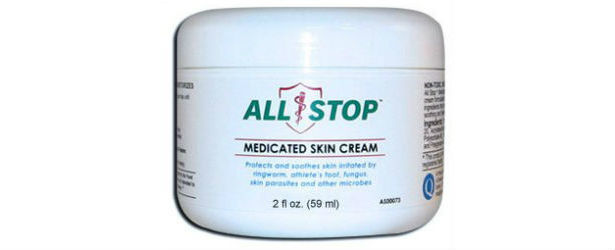
The Difference Between Ringworm and Roundworm
They have very similar names, but ringworm and roundworm are very different from each other. However, they are both conditions that commonly affect children, and your pets can carry both. By knowing the difference you will be able to treat your child or family member appropriately.
What Causes Ringworm and Roundworm?
 Roundworm is an infection caused by a tiny parasite that lives in the intestinal tract of domestic animals like cats and dogs. Ascariasis (the medical name for roundworm) is particularly common when your pets are young as the parasites are passed to the kittens and puppies before birth, or while the mothers are nursing them. They can also become infected with roundworm if they eat the worm eggs in another animal’s stool.
Roundworm is an infection caused by a tiny parasite that lives in the intestinal tract of domestic animals like cats and dogs. Ascariasis (the medical name for roundworm) is particularly common when your pets are young as the parasites are passed to the kittens and puppies before birth, or while the mothers are nursing them. They can also become infected with roundworm if they eat the worm eggs in another animal’s stool.
Your child can also ingest these eggs if they kiss the animals or touch them and don’t wash their hands, but they can also pick them up in parks or play areas that dogs and cats frequent. Roundworm is not common in the US, so if you have travelled to a warm, foreign country and your child becomes infected, it is likely this is where they picked it up.
Ringworm, on the other hand, is not caused by a worm at all. A person or child becomes infected by a fungus when they come into contact with another person or pet that is infected with it.
Tinea Corporis can affect the skin of all parts of the body, including the scalp. It flourishes in warm conditions so is also often picked up in locker rooms or swimming areas, or on foreign trips.
What Are The Signs and Symptoms?
 Usually you will not be aware that your child has roundworm, and the roundworms can live inside the small intestine for up to two years. You may notice the eggs or worms when you are changing your baby’s diaper or assisting your older child with toileting, as female roundworms lay thousands of eggs every day and they leave the body through the stools. The worms can also exit the body through the mouth or nose. Other things that may raise alarm bells include a loss of appetite, a fever, coughing, wheezing, if your child complains of stomach pains, or has suffered sudden weight loss.
Usually you will not be aware that your child has roundworm, and the roundworms can live inside the small intestine for up to two years. You may notice the eggs or worms when you are changing your baby’s diaper or assisting your older child with toileting, as female roundworms lay thousands of eggs every day and they leave the body through the stools. The worms can also exit the body through the mouth or nose. Other things that may raise alarm bells include a loss of appetite, a fever, coughing, wheezing, if your child complains of stomach pains, or has suffered sudden weight loss.
Ringworm is easy to spot as it causes round, red, scaly patches on the face, body or scalp. They can be single lesions or occur in groups. They can become very itchy, crusty and even start to ooze.
How Are They Diagnosed?
Your doctor will request a stool sample to see if there are eggs present after a bowel movement to diagnose roundworm. For ringworm, simply looking at the lesion is enough to diagnose the condition, but a skin scraping can also be done to confirm it.
Are They Dangerous?
Roundworm rarely causes harm to the host, but sometimes the larvae of the parasites can cause damage to body tissue or nerves when they move through the body. If they lodge in the eye they could even cause blindness.
Ringworm causes no short- or long-term harm, but it can cause a lot of discomfort and will recur frequently if not treated properly. The lesions can become infected.
How Are They Treated?
It is very easy to treat roundworm. You can get a medication from your pharmacist that will kill the worms in about three days. In very severe and rare cases surgery is needed to remove the worms if they obstruct the bowel. Ringworm is easily treated with an appropriate anti-fungal cream. Homeopathic treatments and natural home remedies such iodine or neem oil are also effective.
TOP 5
RINGWORMTreatments |
|||||
| Ringworm Clear | Phytozine | DermaRiche | Naturasil | Forces of Nature | |
|---|---|---|---|---|---|
| 1 | 2 | 3 | 4 | 5 | |
| Price (1 bottle) Price (6 bottles) *Best Value |
$49.95 $139.80 |
$39.95 $215.73 |
$39.95 $215.73 |
$49.95 $269.73 |
$34.85 $188.19 |
| Overall Rating | 99.40% | 84.60% | 80.00% | 78.90% | 71.10% |
| Effectiveness |      |      |      |      |      |
| Speed of Results | Extremely Fast | Good | Average | Average | Slow |
| Quality of Ingredients | Premium | Good | Good | Average | Unknown |
| Customer Satisfaction Evaluation | 99.30% | 82.50% | 78.90% | 76.00% | 69.00% |
| Safety Evaluation | Safe for Use | Safe for Use | Safe for Use | Safe for Use | Safe for Use |
| Customer Service Rating |      |      |      |      |      |
| Reorder Rate | Highest | Good | Good | Average | Average |
| Return Policy | Risk Free | Risk Free | Risk Free | Risk Free | Risk Free |
| Success Rate | 99.30% | 81.00% | 78.50% | 75.30% | 69.00% |

 Subscribe Now
Subscribe Now











